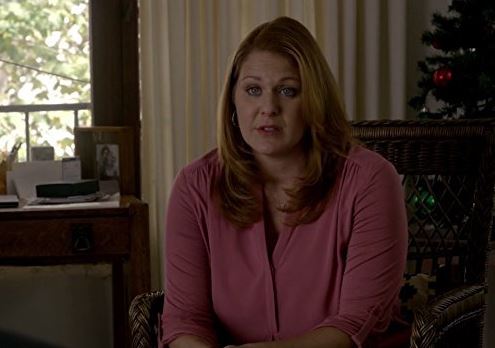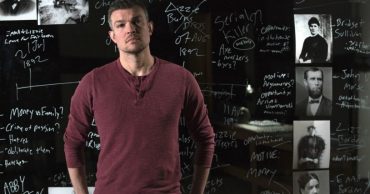
The “c word” Bosch references during lunch with Deputy Chief Irvin Irving (yeah, that’s right) is ‘closure’; but it’s a different “c word” that rules the day during “Blue Religion”: contradiction. As the details surrounding the lives of Raynard Waits and Albert Delacroix become foggier and foggier, Bosch finds itself relying on old standards of dramatic storytelling to drum up mystery; that is, present everything ambiguously as possible.
So far, it’s working for Bosch, which has Titus Welliver, Jaime Hector, Lance Reddick, Amy Aquino, and any number of other fantastic actors to bring scripts to life. “Blue Religion” is heavy on this idea of contradiction, firmly established when Bosch stops LA’s favorite archaeologist to tell him that, in fact, he is a man of faith, and thinks the Delacroix murder fell into his lap for a reason, for him to “put part of this right.” Anyone who has watched a cop show knows the old adage of “don’t take your work home with you” – and if Bosch’s gray hair and shadowy apartment didn’t already suggest he struggled with that, that conversation (along with his argument with Brasher earlier in the episode) prove that Bosch doesn’t always take his own words to heart, and this investigation is reaching towards something deeper inside him, something he’s never been able to ‘put right.’
Now, “Blue Religion” often comes across a bit heavy-handed trying to make these points (at one point, Jerry stops Bosch to point out he’s referring to the victim by name), but for all its traditional story delivery, Bosch‘s murky, increasingly brutal murder mystery remains intriguing. And it comes back to the theme of contradiction threaded through each scene, from little moments like the clearly-shaken reporter insisting he was just “doing his job,” to Bosch capturing Waits in a lie – which may or may not be a lie, as Jerry points out in the final seconds of the episode.
When it comes to capturing the feel of a deep, intricate investigation, this is where Bosch has already found its stride. Being a detective is about studying trends of human behavior, and noticing anomalies; facts that don’t match up with each other, stories that don’t corroborate one another… anything that puts an assumed fact or profile into question, these are the cracks in the foundation of crimes that detectives are hunting for. And throughout “Blue Religion,” Bosch presents the audience with a number of these inconsistencies; Bosch scolding Brasher, Waits and his identity, Bosch talking about his daughter he doesn’t visit, and the mother/daughter conflict Billets talks about but we never see, even when she’s around (her daughter baked her cookies and went shopping with her; what else could she want?) – these pockets of human interaction are key in revealing the contradictory nature of human interaction and self-definition, something Bosch will hopefully capitalize on moving forward.
As a dramatic episode of television, “Blue Religion” is neither exciting or satisfying, a table-setting episode that is really more interesting as a thematic study. Three episodes in, I think that’s a positive sign for Bosch, which has occasionally shown an ability to throw a slight twist on a familiar beat: while it may not be reinventing the police procedural drama, Bosch certainly has retained enough interesting elements (and performances) through three episodes to keep things moving, even when not a lot is happening in the course of an episode.
[Photo via Amazon]
 Follow Us
Follow Us






I’m really enjoying reading your reviews of Bosch. I entirely agree about the show in general. It’s nothing groundbreaking or standout just yet, but it’s surprising me how intrigued and compelled to watch more I am at the end of each episode, despite the fact that when I think back on the events that transpired in each episode, not much actually happens. Definitely a slow-burn, but that’s ok. I have plenty of fast-paced, ‘loud’ shows on my watch-list, it’s a nice change of pace to let this story unfold in it’s meandering yet thoughtful manner. Looking forward to reading your thoughts on further episodes as I watch them.